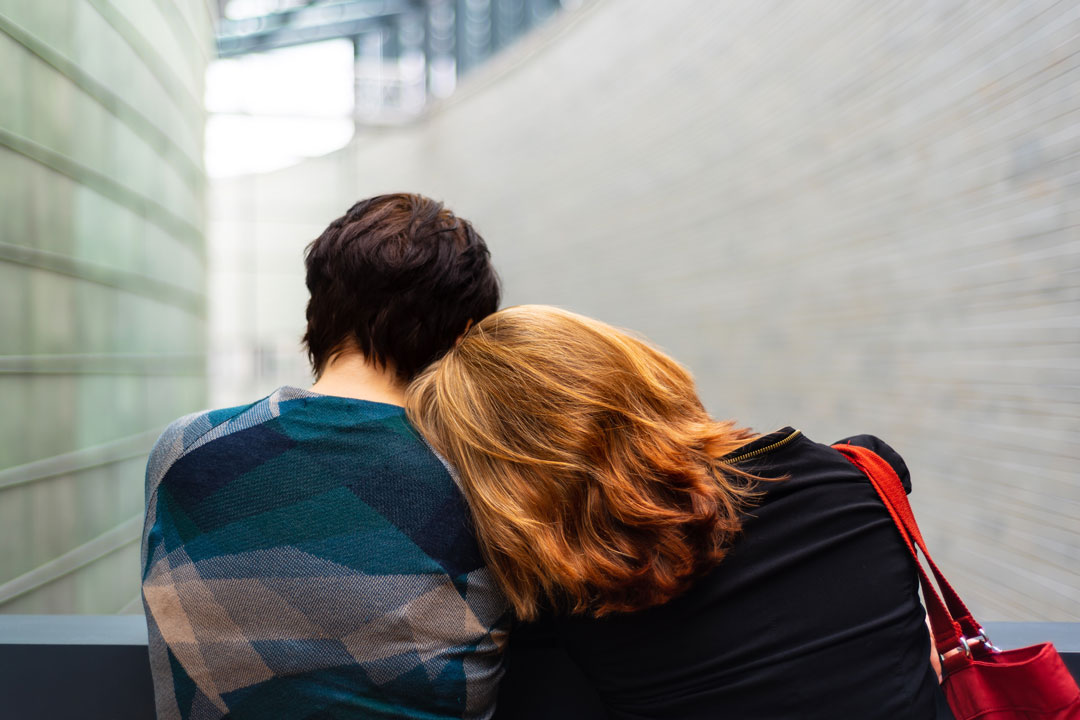|
Second Responder is an emerging term which often refers to trained professionals or trained volunteers who provide various forms of mental, emotional, or spiritual care. Examples of second responder care may include, and is not limited to:
This list, of course, does not exhaust the possibilities of care administered by second responders in response to critical incidents or disasters.
Following the critical role of first responders – including, law enforcement, firefighters, paramedics, and emergency room personnel – second responders provide a second and equally critical role in processes of healing after trauma. Second responders help survivors and those who experience vicarious traumatization of:
Second responders are keenly aware that this process of (re)membering after trauma comes slowly and not necessarily in a linear pattern, and they commit to companioning alongside survivors as they regain their healthy senses. Beginning with basic forms of hospitality and trustworthy companionship, and often through a Village of Care, second responders help survivors heal.
If you would like to learn more about how you or your organization can provide healthy forms of second responder outreach, contact us.
You can sustain free online education and mental, emotional, and spiritual care in the immediate aftermath of disaster. Thank you for your generosity!
0 Comments
Lighting a match should be a simple task.
One, two, three: A match meets the side of its box, a flick of the wrist, crisp crackly sounds, and the flame ignites. Yet, for some of us, lighting a match has become a deeply complex activity. The smell, the sound, the sight of burning light...it all proves too much.
It’s been two years since I woke up at 3 am to a neighbor furiously banging on my door. It’s been two years since I stepped outside with her, to look up at the mountains fully aflame, coming towards our neighborhood. It’s been two years since I ran back inside a pitch-black house and woke everyone up to flee. It’s only been two years and yet I am forever changed by the events of the Tubbs Fire which consumed parts of Santa Rosa in October 2017. Suddenly, things that once seemed mundane and simple, evolved into triggers. I became disconcerted when I saw the color orange, watched hazy sunsets, heard sirens in the distant, and inhaled the smoke from beach bonfires. In the months to come, I would be evacuated several more times from my college campus due to the Thomas Fire and Montecito Debris Flow. I would grow tired and it would become hard even to do one of the most simple tasks: to light a match. I would also come to understand much more of the incredible paradox of human fragility and strength. It was out of weakness many survivors learned the unparalleled strength of togetherness - of learning we are not alone.
When I first began college, I knew I had a keen interest in studying the human story. History, literature, cultural studies, sociology, psychology, even anatomy - if people were involved, I was there. The more I learned, the more the nature of human resilience captured both my heart and my mind. How do humans keep going, amidst struggle and turmoil? What causes someone to try, try, try again? Which factors need to be in place for a person to be resilient despite circumstances? How can we empower people? How can we inspire hope? And so a psychology major was born. Shortly thereafter, my studies quickly collided with my life. I was living right in the middle of two collective trauma stories, where both my home and school communities experienced roads diverging, and both communities faced the hard choice to take the road less traveled. In each case, we had to choose to wake up every day and have hope. We had to choose to keep persisting. We had to choose to lean into uncomfortable spaces, become vulnerable, engage with grief, and heal. We had to choose to remake the meaning of lighting a match. Last Christmas, I made candles for my friends, family, and professors as gifts. The meaning behind a candle, behind lighting a match, was reborn. As members of my faith gathered to celebrate the gift of Emmanuel (The Christian recognition God is with us), I wanted those around me to remember this gift of withness as well. I wanted them to see light, life, warmth, hope, and togetherness at the sight of that little flame. This August I began my fourth year at Westmont College. As a senior psychology major, I have the unique opportunity to take our Capstone Senior Psychology Practicum course. Under the guidance of faculty, twelve seniors have embarked on the journey to put our education to practice. Swapping textbooks for hands-on learning, we each have been partnered with a local Santa Barbara psychological professional. Last year, I watched my dear friend Eva Pauley grow as a student, leader, and comforter as she worked as a religious studies intern for ICTG. When I first began my search for my supervisor, Dr. Kate Wiebe the Executive Director of ICTG, was the first name on my list. Now several months later, I have completed my first month as a psychology practicum student at ICTG. I’ve already learned so much in such a short span of time, particularly about ways in which trauma not only impacts individuals but also impacts groups and the spirit of a community. I am amazed by the dedication of the ICTG staff to work together to empower leaders and communities faced with great challenges. Over the next three months, I will be focusing on these questions: How can communities foster resilience after they experience a collective trauma? What steps have local communities taken towards providing emotional, spiritual, and mental support? What has worked and where is there room for growth and innovation? I look forward to learning more from this gifted team of individuals, and the survivors and responders we serve. Most of all, I look forward to engaging in this opportunity to continue sharing the gift of togetherness.
Did you know you can give a financial gift to help support ICTG's unique learning-serving internships? ICTG interns receive one-on-one coaching and complete projects related to their community leadership interests. Help support our internship program and donate today!
|
�
ICTG BLOGFrom 2012-2020, this blog space explored the changing landscape of long-term care. This website serves as a historical mark of work the Institute conducted prior to 2022. This website is no longer updated.
Archives
December 2020
Categories
All
|





 RSS Feed
RSS Feed
